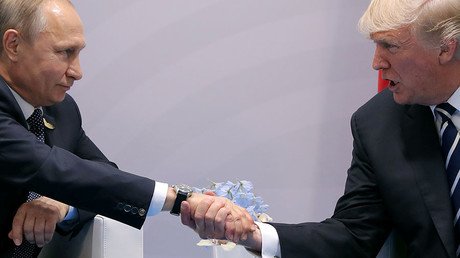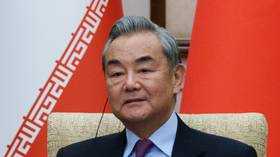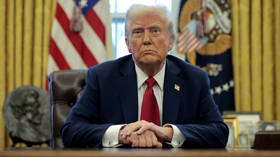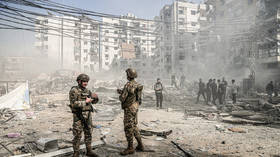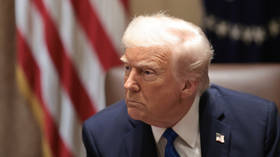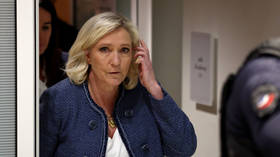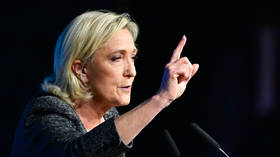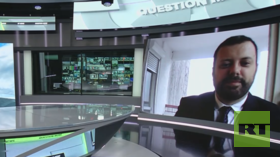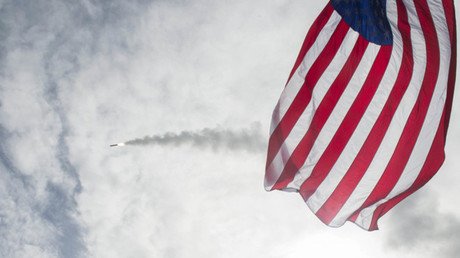‘Why don’t we talk to people before we use sanctions & bombs?’ – Ron Paul
Speaking to RT, former US Congressman and presidential candidate Ron Paul said that the recent phone call between Trump and Putin was a good sign, but the hawkish wing of American politics is always standing at the ready.
On Sunday, Russian President Vladimir Putin made a call to his American counterpart, Donald Trump, to thank him and CIA director Mike Pompeo for providing intelligence that helped thwart a major terrorist attack in St Petersburg. Ron Paul, who has consistently pushed for constructive relations between the United States and Russia, told RT that he was excited by the news.
“I really like this, I think this is good, and I think this is what we should work on. So both of them should be complimented on this, that they’re willing to [talk], I think it’d be a good idea if they talked every week,” he said.
Unfortunately, the call also highlights a dichotomy in which the US and Russia cooperate on some matters, like counterterrorism, but remain bitter rivals in others.
“At the same time, if we can be civil and talk to each other, why do we, and I speak for our country, have to spend so much money pretending we’re gonna be invaded and we’re threatened by Russian aggression?” the former lawmaker pondered. “That makes no sense whatsoever.”
Ron Paul has always been somewhat of a loose cannon in American politics for his opposition to all sorts of warmongering, from the war on drugs to the conflicts in the Middle East. He told RT that the current political establishment in the US is too eager to jump to deploy the military or impose penalties on countries they have disagreements with.
“Unfortunately, it’s a bipartisan thing in this country,” he explained, referring to both the Republicans and the Democrats. “When I was in Congress and I would speak this way, and when I ran for president, I literally could get booed for saying things like ‘we ought to talk to people, you know.’ At that point it was dealing with Cuba and other countries, and of course the Middle East. Why don’t we talk to people before we decide that we have to use sanctions and blockades and bombs.”
This attitude is reflected in the new National Security Strategy, announcing which Trump called China and Russia “revisionist” and “rival powers” that “challenge American influence, values and wealth,” but said that he was planning to work with them while putting American interests first.
LIVE: 'Our rivals are tough, tenacious & committed to the long-term, but so are we... America is in the game & America is going to win' https://t.co/lCwliBoqsIpic.twitter.com/gpeYUomN0t
— RT America (@RT_America) December 18, 2017
“They start with the wrong premise. They start with the idea that we have an empire, that we have a responsibility, they believe it’s a moral responsibility and we are the deciders and we can influence people because we are exceptional. They all start with the wrong thing so it’s just a matter of degree.
All countries are imperfect and we should do our best to get along. The best thing you can do is trade with people, and talk with people and travel with people.”
Paul, who supports lifting the sanctions against Russia, said that economic pressure is a poor way of dealing even with such small states as North Korea, since they are unlikely to make an impact on decision making.
“Even as weird and disruptive as North Korea is, there’s no need for sanctions. All they do is hurt the poor people… There’s much better ways to solve problems in the world without using force, power, intimidation, bombs and boycotts.”
